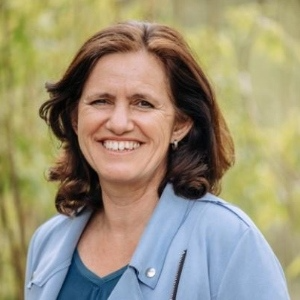Abstract:
In healthcare, the emphasis is on stimulating one's own strength, the ability to adapt to a changing health condition or circumstances and increasing control over one's own life. Since 2015, in de Netherlands, the focus on a person’s own control and adaptiveness is reflected in healthcare policy and regulations. Taking control is expected from both the patient and the professional. The patient is expected to be more pro-active in thinking about solutions to the management of their healthcare needs. Care professionals are expected to exert autonomy and professionalism to deliver appropriate care in line with the needs, preferences and capabilities of the patient. An evaluation study of The Netherlands Institute for Social Research (2020) about five years reforms in Dutch healthcare systems and legislation showed that these expectations are overestimated.
A systematic review showed that the concept of control in families with children with chronic illness, has a broad range of definitions and related aspects [1]. An follow-up study focuses on control in practice, the experiences of parents with children with a life-limiting or life-threatening illness to get a deeper understanding of their perspective on control. This qualitive study was performed in the Netherlands, in seven Regional Networks Integrated Childcare (NIC). In every NIC a mirror-meeting was organized with 2/6 parents and professionals present as listeners.
The results showed that control is a broad concept and encompasses a wide range of translations into practice. Also, we see differences in what parents need and prefer and their individual experiences of their support to perceive control. These different needs require different approaches. Especially in the initial phase after diagnosis, parents are thrown into the deep and not able to take control. It seems important that professionals involved with the family pay attention to equip families. Shared decision-making is an important aspect of control, the results show different experiences to what extent decisions are made. Consciously putting shared decision-making on the agenda is not self-evident. Further, parents indicate that they cannot change their child’s illness, that they have no control over it, but that control is influenced by everything that happens around their child. Organizational barriers are frustrating here and interfere with taking control, especially administrative burdens, protocols and hassle around legislation/financing are not helpful. Parents are depending on the professionals around them. An open and friendly attitude towards the parents, truly listening is facilitating and helps parents to take control. Innovations for organizing a dedicated and trusted point of contact are mentioned by parents as helping to take control. Currently (April 2024), we have initiated a new round of mirror meetings in each NIC once again. Following the recommendations from the previous study, we are concentrating on evaluating the NIC intervention. With the mirror meetings we evaluate from the perspective of parents: “What are the success factors of the intervention model 'NIC' aligned with what parents find important, and how do they feel supported in their control over the care for their child?”
Audience Take Away
- To gain insight from the perspective of parents into what is supportive and what not for their well-being within their family with a child with a life-limiting or life-threatening illness
- Insight into success factors for appropriate interventions that help parents feel supported in their control over their child's care
- Recognize that all parents start completely blank in the beginning and rely entirely on the professionals around them
- Understand the importance of truly an open listening to parents and building trust to collabarate effectively




